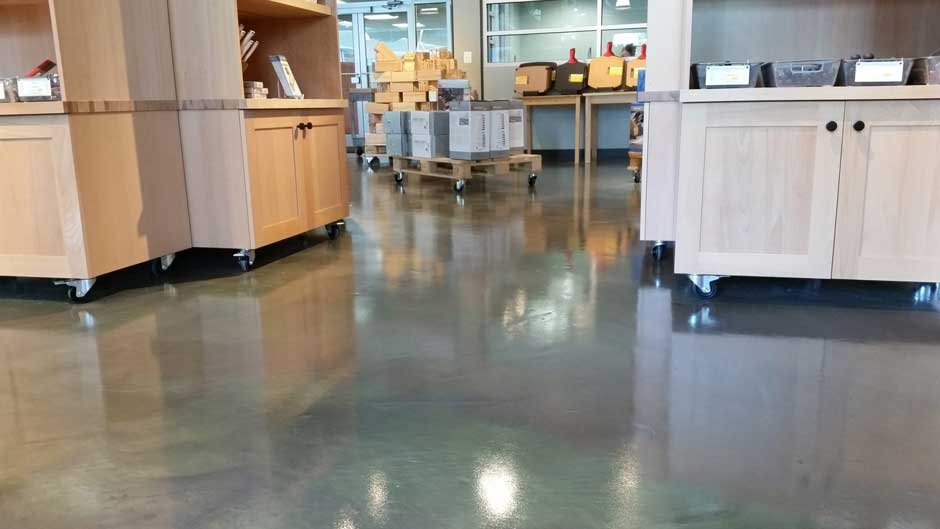Gypcrete is a specialized type of concrete made from a mixture of sand, water, and gypsum-based cement. This gypsum concrete is lightweight and has exceptional sound and fire control properties making it an ideal sub-floor option during construction. Here is more information about gypcrete and its uses in commercial spaces:
Gypcrete Features and Uses
Gypsum concrete is a lightweight cement-like underlayment that flooring contractors use as subflooring material before laying final floor coverings. This material is self-leveling, which makes it easy to work with. You can use gypsum concrete to level uneven floor surfaces in your commercial space.
Because of its lightweight nature, gypsum concrete is only helpful as a subfloor for specific flooring types. Flooring types like hardwood that require nailing down may not adhere well when laid over gypcrete because it tends to create a gritty surface. Before installing adhesive-type flooring, check whether the adhesive used on the flooring is compatible with gypsum concrete. Carpeting is the best flooring type to lay over gypsum concrete.
Gypcrete is ideal for industrial flooring due to its fireproof properties. This subfloor material provides a passive fire protection system that meets building codes in most states. Gypsum underlayment, in combination with sound control mats, provides a cost-effective soundproofing solution for multifamily residential buildings, allowing landlords to meet minimum sound ratings without overspending on soundproofing.
Contractors can use gypsum concrete to stabilize piping for underfloor heating systems. The light consistency of gypcrete makes it easy to pour into crevices, where it encapsulates the pipes in the heating system, protecting them from damage while conducting the heat and effectively warming the room. Building contracts may also use gypcrete for asbestos encapsulation in old buildings, providing adequate protection from the harmful effects of asbestos.
Gypsum concrete cures faster than most subfloor materials and has a shorter installation time. Production costs for gypsum concrete are low, making it easier to stick to your budget during construction.
Considerations for Gypcrete in Commercial Spaces
Due to its unique benefits as an underlayment material, gypsum concrete is great for commercial and industrial construction. Gypcrete is relatively easy to install, but installation is a specialty trade due to the requirements when using this material. Below are some key considerations when using gypcrete in commercial spaces:
You Need a Specialty Contractor for Installation
Gypsum underlayment presents a unique set of challenges that only an experienced licensed contractor can understand. Different preparations are necessary when installing different flooring types over gypsum underlayment. You must use a special flexible bonding material when installing ceramic tiles over gypcrete. You need a solvent-based adhesive for installing laminated hardwood flooring over a gypsum underlayment. A licensed contractor specializing in gypsum concrete subfloors knows what products you need to install each flooring type on gypcrete.
Gypcrete Requires On-site Mixing and Testing
Contractors mix the materials for gypsum underlayment on-site using a specialized truck. The truck has a mixing tank for combining water, sand, and gypsum-based cement. It must also have a water tank and a conveyor for the sand and gypsum-based cement. The raw material proportions and mixing process must adhere to manufacturer specifications to produce high-quality gypcrete.
Contractors should test gypcrete for moisture before installation. Excess moisture can damage the flooring or cause mold. The moisture content allowed for gypcrete depends on the type of flooring you want to install and the thickness of the pour.
Choose Gypsum Underlayment for Your Floors
When installed correctly, gypcrete has a lot of benefits in commercial spaces. The material is affordable and easy to install, making it suitable for commercial spaces where cost savings are a priority for owners. Gypcrete has unique installation requirements, so hire a licensed professional to install it in your building.









